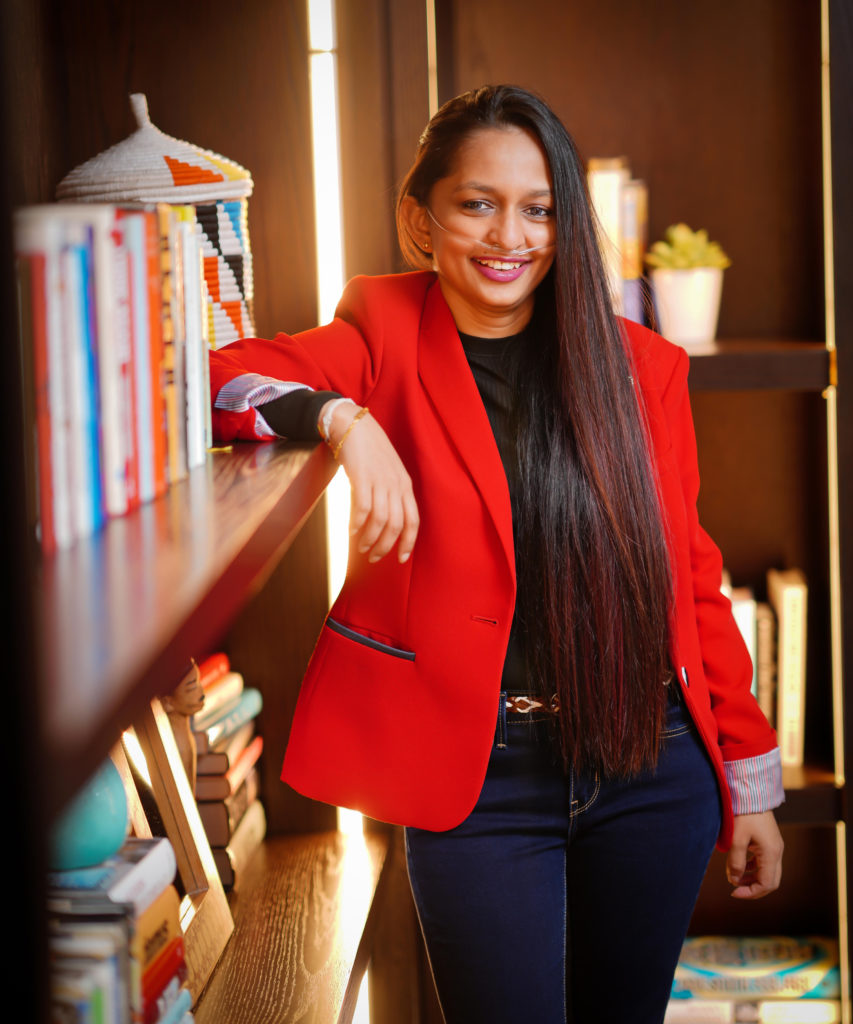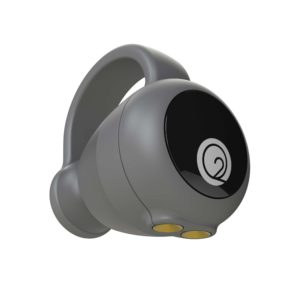
At 33, Shavini Fernando was given just two years to live—the result of a late-diagnosed hole in her heart, which caused her to develop a life-threatening condition called Eisenmenger syndrome. The Sri Lanka native, who came to the US to seek treatment at Johns Hopkins, was told by doctors that she couldn’t fly, meaning she wasn’t able to return home—or live alone. Patients such as Fernando often put their lives on hold, because routine activities like climbing stairs or even environmental factors like heat and humidity can cause their oxygen levels to plummet dangerously without notice.
Monitoring blood oxygen is crucial, but the current tool—a fingertip pulse oximeter—doesn’t work as well for people with darker skin tones. So, as any self-described “rebel personality” with master’s degrees in business and computer science might do, Fernando invented a better device. Called OxiWear, it’s a tiny oxygen-monitoring and emergency-alert system that’s worn on the ear. “When people say no to me, I want to prove them wrong,” says Fernando, who lives in Rosslyn. The device has allowed her to live alone—and seemed so promising that in 2019 she started a company to sell it.
Initially, funding was hard to come by. Fernando says she pitched 347 potential investors, many of whom didn’t get why oxygen might need monitoring. It just seemed too niche of a market. That all changed during the Covid-19 pandemic, when oximeters were widely adopted for home use. OxiWear received $1.5 million in funding last October and is currently closing a deal for another $1 million. “This time,” says Fernando, “I didn’t have to pitch anyone.”

In October, OxiWear will arrive on the market. The $500 accessory doesn’t just measure oxygen: It also keeps track of environmental factors that impact oxygen intake, including altitude and air quality. It connects to an app that can alert emergency services and personal contacts if a patient’s oxygen levels drop.
The device is undergoing clinical testing to pursue FDA approval. But initially, it’s finding a market in the sports world, where athletes are using it to monitor themselves in high-altitude environments. OxiWear also recently signed a partnership with the Obstacle Course Racing World Championship.
Still, Fernando says OxiWear’s potential medical benefits are what have kept her going: “There were so many times I almost hit my head on a wall,” but then she’d hear from patients who were excited by what the device could mean for their health. “So I’m like, okay, I’m doing the right thing.”















